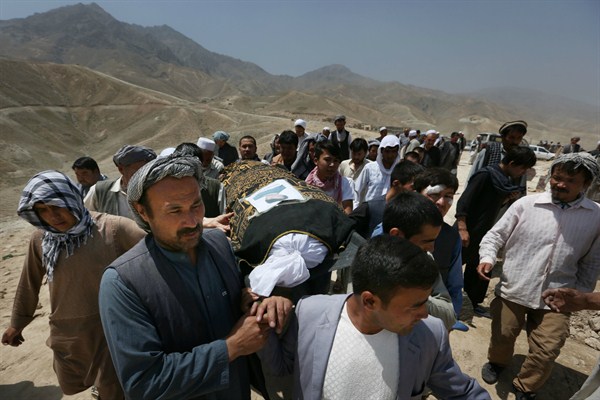The most recent suicide bombing in Kabul over the weekend, claimed by the so-called Islamic State, contrasts with the near absence of debate over Afghanistan in the U.S. presidential campaign to date. President Barack Obama’s decision to slow down the withdrawal of U.S. forces from the country may be enough to delay a difficult debate about abandoning the Afghans. But as the bombing highlights, the presence of U.S. and coalition forces is clearly not sufficient to prevent the violence that plagues Afghanistan.
The next president will have a chance to revalidate or reposition U.S. engagement there. The larger challenge is to shift the debate about the U.S. commitment to longer-term goals, building on the gradual achievements of state-building rather than the acute threat from the Islamic State and the enduring challenge of the Taliban.
It’s hard to have a clear sense of what has been accomplished in the 15 years of intense U.S. and NATO involvement in Afghanistan. According to the United Nations Development Programme’s careful statistics, the country ranks 171 out of 188 countries studied, putting it in the lowest category of human development. It also ranks, alongside Somalia and North Korea, at the top of the corruption rankings, according to Transparency International.

